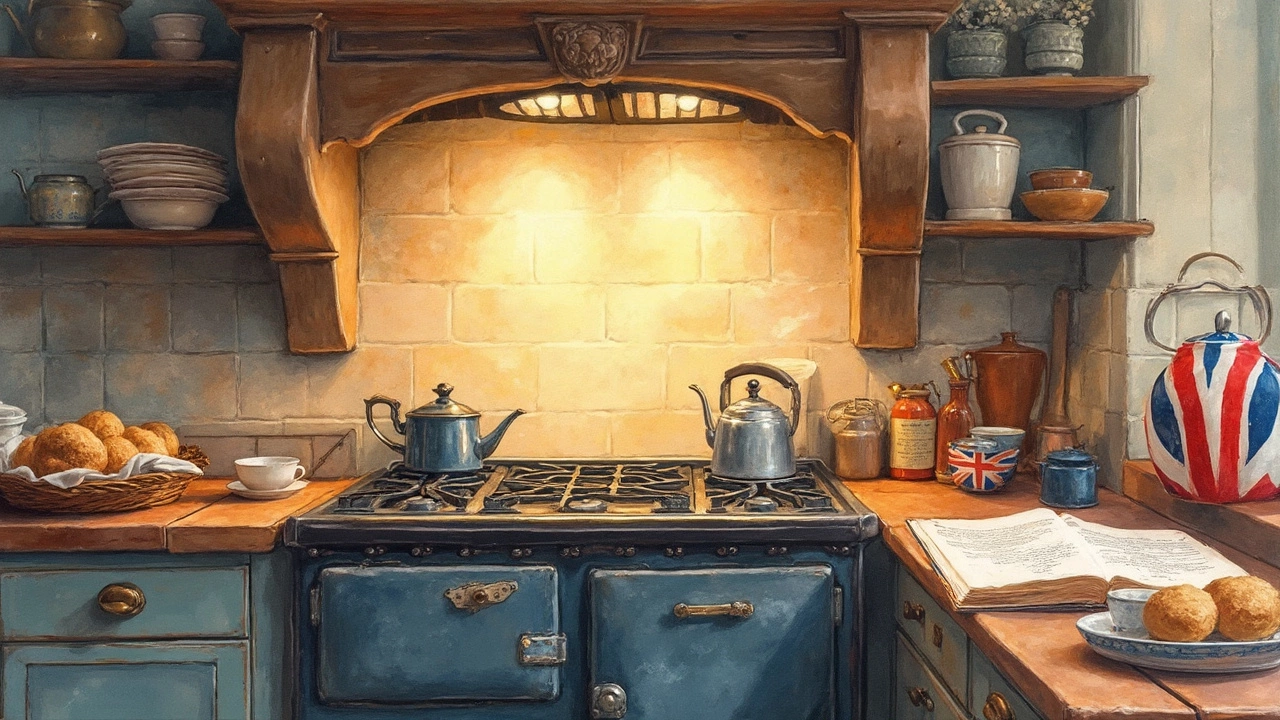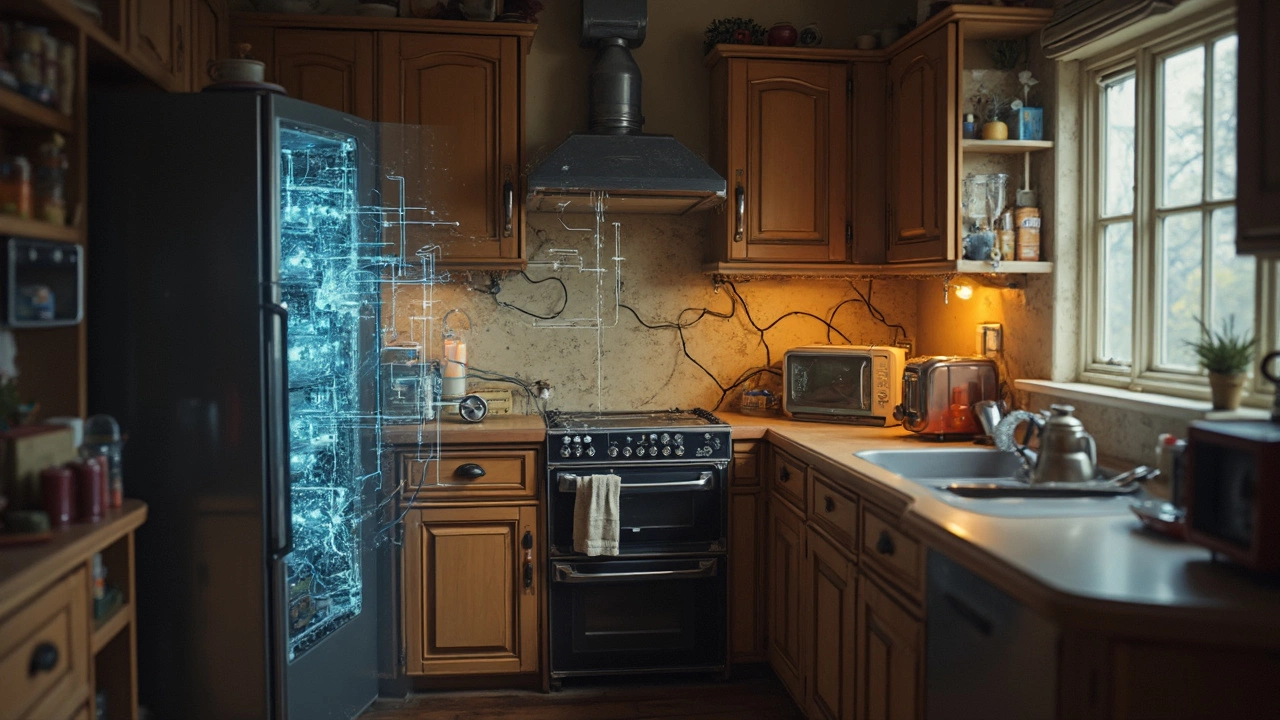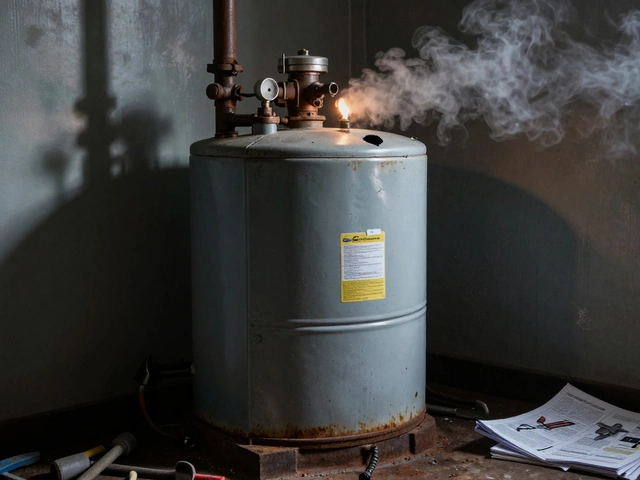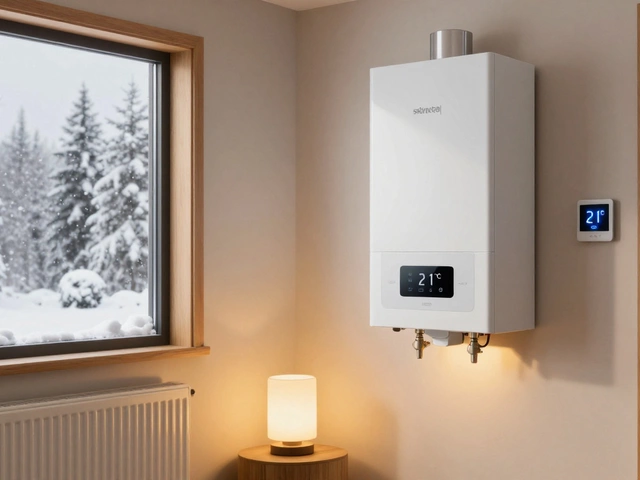Ever wondered how long your gas stove or heater is supposed to last? You're not alone. Most gas appliances have an expected lifespan of 10 to 20 years. But here's the kicker: not all appliances are created equal. Some might tap out sooner due to a lack of maintenance, while others could surprise you with their longevity.
Take gas stoves, for instance. They're generally sturdy and can last up to 15 years if they're well-cared for. A little cleaning and checking for leaks every now and then can go a long way. Meanwhile, water heaters usually offer reliable service for about 10 to 12 years but are often a little more needy in terms of care.
- Basics of Gas Appliance Lifespan
- Factors Affecting Longevity
- Maintenance Tips for Prolonging Lifespan
- Signs It's Time for a Replacement
Basics of Gas Appliance Lifespan
Gas appliances are essential in keeping our homes cozy and functional, but they come with a ticking clock. So, how long can you expect them to stick around? Generally, their lifespan ranges from 10 to 20 years. But it's not a one-size-fits-all kind of thing.
Your trusty gas stove, for instance, can serve you well for about 15 years. This depends on a few factors like usage and maintenance. On the other hand, your water heater, which often quietly works away in the background, might last for about 10 to 12 years. Wall heaters and gas furnaces usually have a longer stretch, often hitting the 15 to 20-year mark if you give them a little TLC.
Why Do Lifespans Vary?
Not all appliances wear out at the same rate. Think about the gas stove you use daily versus that spare room wall heater that only kicks in during the dead of winter. The more you use an appliance, the faster it wears out. Maintenance is another biggie. Skip those regular check-ups, and you could cut down that lifespan significantly.
Average Lifespan Table
Here's a snapshot of the average lifespans for common gas appliances:
| Appliance Type | Average Lifespan |
|---|---|
| Gas Stove | 15 years |
| Water Heater | 10-12 years |
| Wall Heater | 15-20 years |
| Gas Furnace | 15-20 years |
Knowing these numbers helps you plan better. Nobody wants to get caught off guard with a dead heater in the middle of winter. So, keep an eye on your appliances and give them the love they deserve for a longer life.
Regular maintenance not only extends the lifespan of your gas appliances but also ensures they operate efficiently and safely. So when's the last time you checked your gear?
Factors Affecting Longevity
Think every gas appliance is going to last exactly the same amount of time? Think again. Several factors can mess with the lifespan of your trusty gas appliances. Understanding these can help you squeeze a few more years out of them.
Quality of the Appliance
First off, let's talk quality. Top-of-the-line models generally outlast their budget counterparts. Sure, you might pay a bit more upfront, but the payoff can be fewer repairs and a longer life. It's true what they say: you get what you pay for.
Usage Patterns
How often do you use your appliances? If you're whipping up gourmet meals every night, your stove is getting a workout. Constant use can wear out parts quicker. On the flip side, a weekend-only grill might stand the test of time a bit better.
Maintenance and Care
Ever heard of early intervention? Regular check-ups and preventive care can stop minor issues from becoming big ones. Consistent cleaning and annual professional inspections do wonders for extending the life of gas appliances. If you're not up to snuff on what needs regular check-ups, a little research or hiring a pro can save future headaches.
Installation Quality
Installation matters more than most folks realize. A correct setup ensures everything's running smoothly right from the start, while poor installation can make your appliance struggle right out of the gate. Always opt for a professional installation.
Environmental Factors
Say you live by the beach. The salt air can mess with metals and cause corrosion faster. Or if you're in a very humid climate, moisture can sneak its way into places it shouldn't, leading to rust issues. Being aware of these environmental sneaks can help you take defensive actions like applying protective coatings.
So next time you wonder about the health of your gas appliance, remember that you're not just at the mercy of time. A little attention here and there can really pay off long-term.
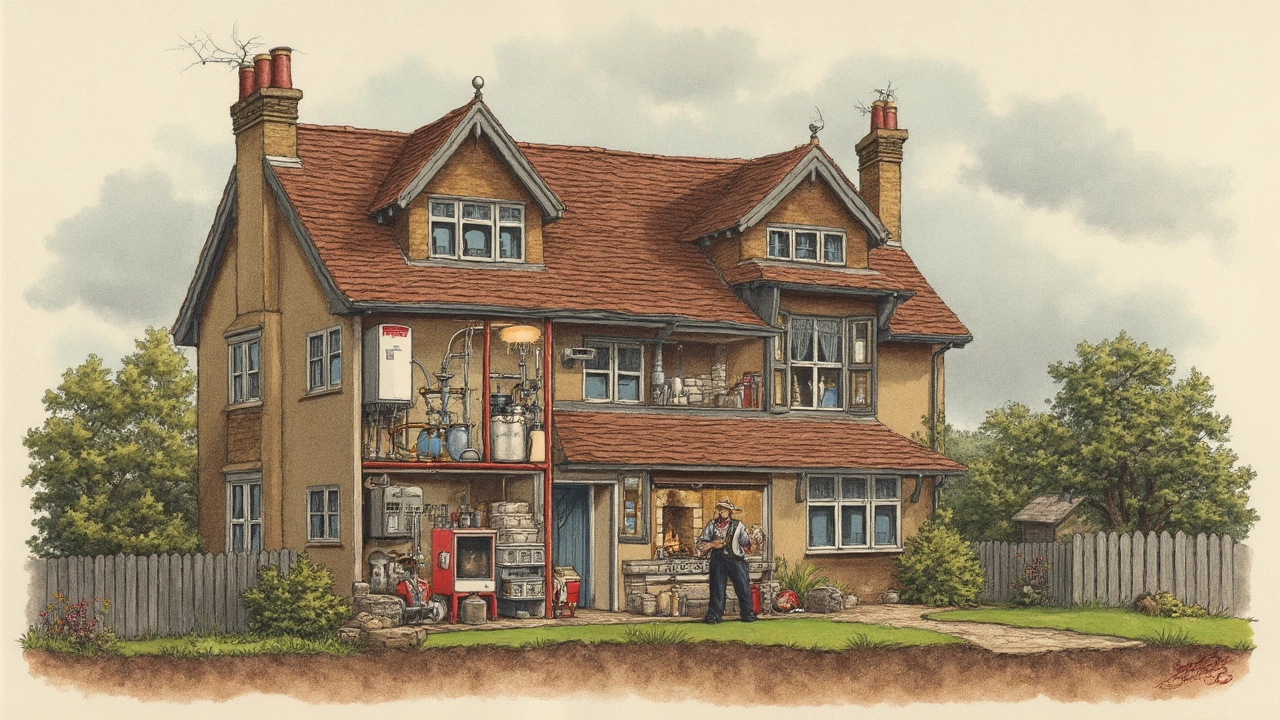
Maintenance Tips for Prolonging Lifespan
Keeping your gas appliances in top shape isn't rocket science, but it does require a bit of regular attention. These appliances, from gas stoves to water heaters, benefit massively from some good old-fashioned TLC.
Regular Cleaning
Dirt and grime can lead to bigger problems down the road. Make it a habit to wipe down your appliances with a soft, damp cloth. You don't need harsh chemicals, just a gentle clean to prevent buildup. For fridges, don't forget the coils — vacuum them once a year to keep them efficient.
Inspect and Tighten Connections
It sounds simple, but checking your gas connections is key to safety and longevity. Loose or faulty connections can lead to leaks. Every few months, make sure nothing is out of place or needs tightening. This little step can save you a lot of trouble.
Service and Tune-Ups
Think of your gas appliances like a car - they need a tune-up now and then. Regular service, at least once a year, can help spot issues before they become major. A professional can check the burners, ventilation, and any electronic controls.
Pay Attention to Warning Signs
Don't ignore unusual noises or strange smells. These are red flags that your appliance could be on the fritz or, worse, pose a safety hazard. If something smells or sounds off, it's time to call in a pro.
Use Appliances Wisely
Don't overload gas appliances, especially dryers or stoves, beyond their designed capacity. It's tempting to shove in an extra load or pot, but sticking to the right amount reduces wear and tear.
Following these tips won’t make your gas appliances immortal, but they might just squeeze a few more years out of them. Want proof? A recent survey showed that homeowners who followed regular maintenance routines saw their appliances lasting 20% longer!
Signs It's Time for a Replacement
Think your gas appliance might be on its last legs? After years of faithful service, even the best ones call it a day. So, what are the hints that it's time to let go?
Falling Efficiency
First off, if your appliance is taking longer to do its job—like if your stove isn't cooking as fast or the water heater isn't heating water efficiently—this might be more than a minor hiccup. These are tell-tale signs of wear and tear.
Frequent Repairs
Find yourself calling the repair guy more often than you'd like? Frequent breakdowns can quickly add up, costing you both time and money. If you've already spent 50% of what a new appliance would cost on repairs, it's time to consider replacement.
Strange Noises and Smells
The occasional hum or whoosh is normal, but odd noises like bangs or persistent rattles aren't usual. Similarly, any strong gas odor is a red flag for immediate action, as this can be a serious safety hazard. Don't ignore any strange smells.
Old Age
| Appliance | Average Lifespan (Years) |
|---|---|
| Gas Stove | 15 |
| Water Heater | 10-12 |
| Heater | 10-20 |
Check out the table above for the average lifespan of different gas appliances. If your appliance is already past its prime, replacing it could save you from those unavoidable inefficiencies and repair costs.
Rising Utility Bills
If all of a sudden your bills seem to be climbing for no good reason, your old appliance might be the culprit. As gas appliances age, they can become less efficient, zapping more energy to get the same job done.
Keep an eye out for these signs. Replacing a dodgy appliance not only saves you stress but may also improve your home’s energy efficiency. So, if you notice these issues, it's best to start shopping around sooner rather than later.
